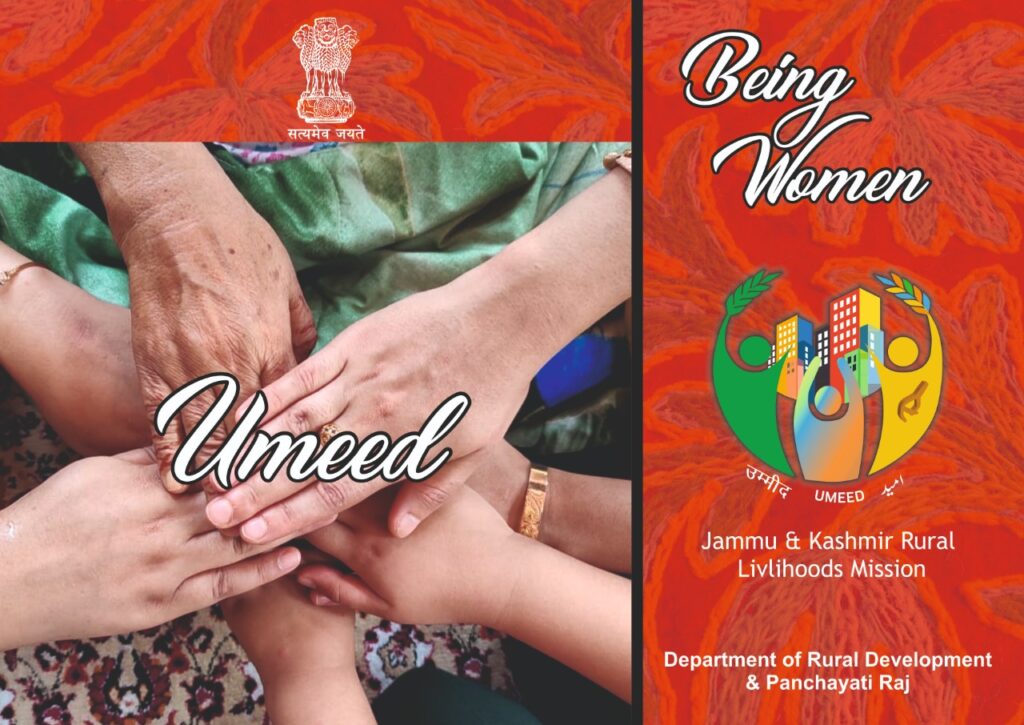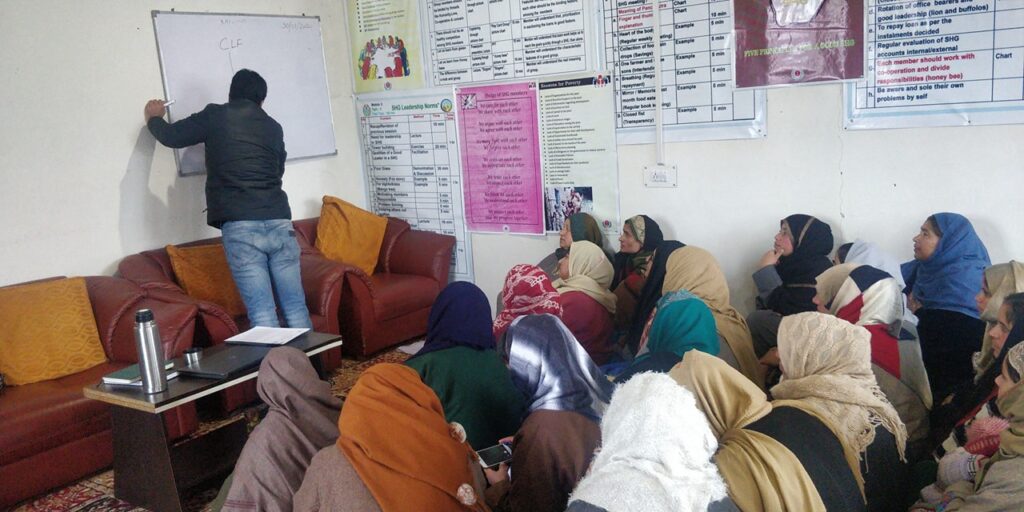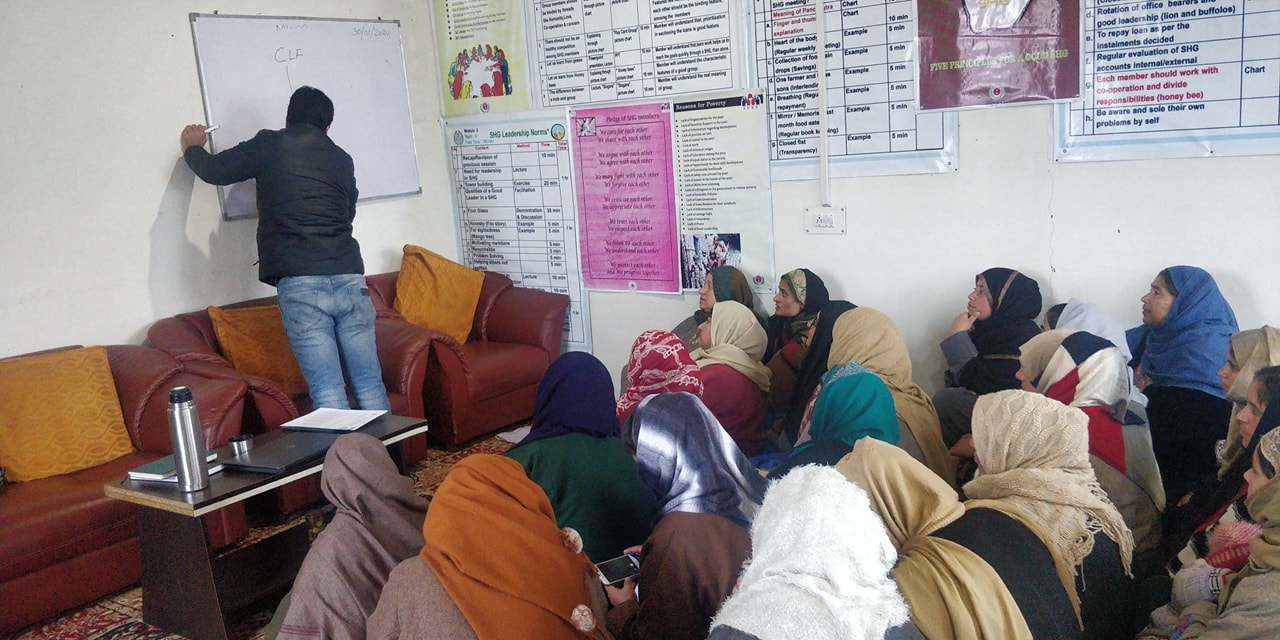Rural women in J&K are redefining success as they transition from job seekers to job creators. The impact of programs like Saath, Umeed, Mumkin, Hausla, and Tejaswini has reshaped the economic landscape of the region.
By Ishtiyaq Ahmad
The Jammu and Kashmir Union Territory government, spearheaded by Lieutenant Governor Manoj Sinha, is actively engaged in implementing a series of Central-sponsored schemes that are ushering in a transformative era for rural women in the region. The meticulous execution of initiatives such as Saath, Umeed, Mumkin, Hausla, and Tejaswini is not only empowering women but also providing avenues for them to excel across various fields.
Government officials within the Union Territory assert that these schemes have played a pivotal role in bolstering the socio-economic independence of women in Jammu and Kashmir. “The overarching goal is to empower women to transition from being job seekers to job creators, thereby amplifying their contributions to the Union Territory’s GDP,” A senior government official, who chose to remain anonymous.
The positive impact of these initiatives is palpable, particularly in the rise of women entrepreneurs in Jammu and Kashmir. Young women entrepreneurs are reshaping societal norms, ensuring economic security, and paving the way for others to follow in their footsteps. Additionally, the Jammu and Kashmir Rural Livelihoods Mission (JKRLM) programs are significantly contributing to the transformation of rural women’s lives in the region. The government remains steadfast in its commitment to provide women entrepreneurs from Self-Help Groups (SHGs) with access to capital, quality mentorship, and assistance in reaching new markets.

In its pursuit of creating a conducive environment for women entrepreneurs, the Union Territory government, through the Jammu and Kashmir Trade Promotion Organization (JKTPO), is actively identifying various stakeholders and partners. These collaborations aim to provide the necessary support for women entrepreneurs to scale new heights.
The government places paramount importance on the safety, security, and empowerment of women, including those in rural areas. A comprehensive approach has been adopted to address women’s needs across their life cycle, encompassing education, social empowerment, economic inclusion, and political participation. The inclusion of women in Self-Help Groups (SHGs) under the Jammu and Kashmir Rural Livelihoods Mission (UMEED) scheme has significantly revolutionized women entrepreneurship at the grassroots level.
Moreover, the Tejaswani scheme provides financial assistance to young women between the ages of 18 and 35, enabling them to establish gainful self-employment ventures tailored to their skills, training, aptitude, and local conditions. The scheme offers financial support, mentorship, and interest subsidies, making it an attractive avenue for aspiring businesswomen.
A flagship program, ‘SAATH,’ was launched to promote self-reliance among rural women. Under the SAATH program, comprehensive mentoring is provided to selected SHG members, aiding them in scaling up their businesses and becoming established enterprises. Training in marketing, branding, forward linkages, sales, and business management equips SHG entrepreneurs with the skills to thrive in the market.
The ‘HAUSLA – inspiring her growth’ program, initiated by Lieutenant Governor Manoj Sinha, is another comprehensive initiative aimed at catalyzing women entrepreneurship in the UT. It is part of a broader effort to inspire young women to start and grow innovative businesses, creating a robust women workforce.

Furthermore, the government has implemented several national schemes and programs to promote the welfare of women and girls in the region. These initiatives include mandates for women’s participation in the National Rural Employment Guarantee Act (MGNREGA) and support for women’s cooperatives, among others.
In Jammu and Kashmir, these multi-pronged efforts are collectively reshaping the landscape for women, enabling them to become self-reliant entrepreneurs and valuable contributors to the Union Territory’s growth and development. The commitment to empowering women in the region remains a cornerstone of government policy, driving a new era of progress and equality.

Leave a Reply